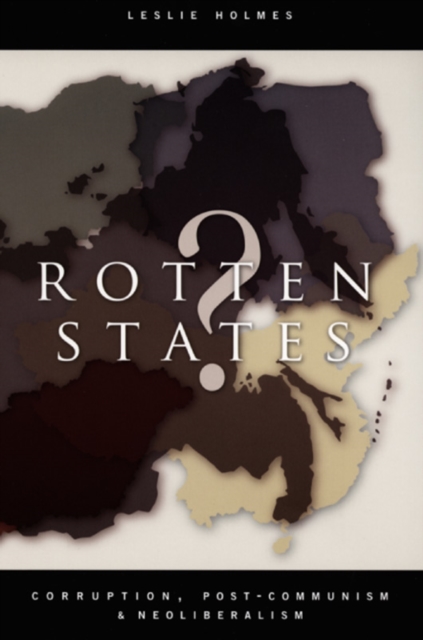
Rotten States? : Corruption, Post-Communism, and Neoliberalism Paperback / softback
by Leslie Holmes
Paperback / softback
Description
Official corruption has become increasingly prevalent around the world since the early 1990s.
The situation appears to be particularly acute in the post-communist states.
Corruption—be it real or perceived—is a major problem with concrete implications, including a lowered likelihood of foreign investment.
In Rotten States? Leslie Holmes analyzes corruption in post-communist countries, paying particular attention to Bulgaria, Hungary, Poland, and Russia, as well as China, which Holmes argues has produced, through its recent economic liberalization, a system similar to post-communism.
As he points out, these countries offer useful comparisons: they vary in terms of size, religious orientation, ethnic homogeneity, and their approaches to and economic success with the transition from communism.Drawing on data including surveys commissioned especially for this study, Holmes examines the causes and consequences of official corruption as well as ways of combating it.
He focuses particular attention on the timing of the recent increase in reports of corruption, the relationship between post-communism and corruption, and the interplay between corruption and the delegitimation and weakening of the state.
Holmes argues that the global turn toward neoliberalism—with its focus on ends over means, flexibility, and a reduced role for the state—has generated much of the corruption in post-communist states.
At the same time, he points out that neoliberalism is perhaps the single most powerful tool for overcoming the communist legacy, which is an even more significant cause of corruption.
Among the conclusions that Holmes draws is that a strong democratic state is needed in the early stages of the transition from communism in order to prevent corruption from taking hold.
Information
-
Available to Order - This title is available to order, with delivery expected within 2 weeks
- Format:Paperback / softback
- Pages:440 pages, 18 tables
- Publisher:Duke University Press
- Publication Date:08/06/2006
- Category:
- ISBN:9780822337928
Other Formats
- Hardback from £107.00
Information
-
Available to Order - This title is available to order, with delivery expected within 2 weeks
- Format:Paperback / softback
- Pages:440 pages, 18 tables
- Publisher:Duke University Press
- Publication Date:08/06/2006
- Category:
- ISBN:9780822337928






